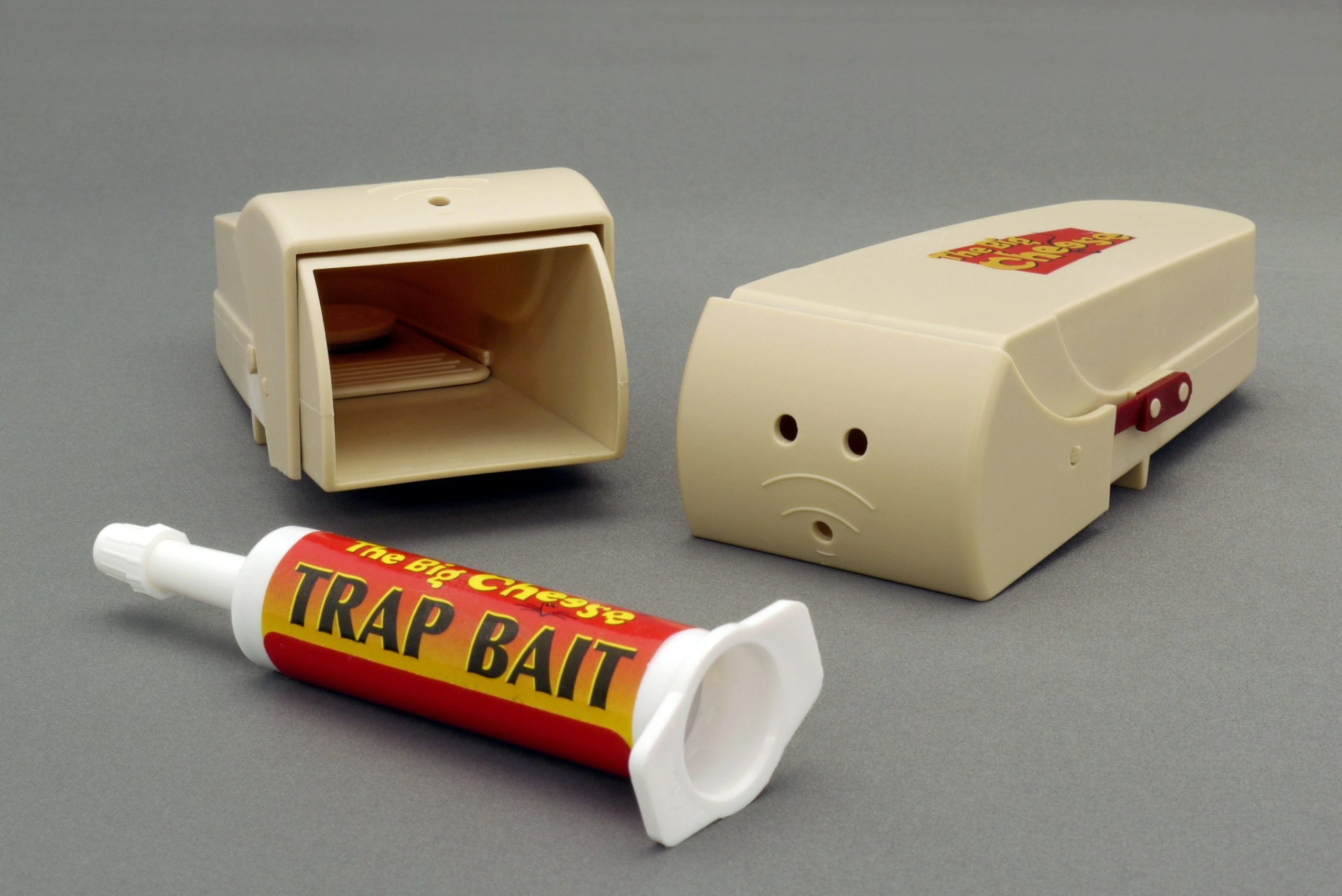Mouse poison, or rodenticide, is a pest management tool used to control mouse populations. These poisons are designed to mimic the natural food sources of mice, enticing them to ingest lethal substances. While effective, the use of mouse poison raises questions about safety, ethics, and the best type to use.
Is Mouse Poison Safe?
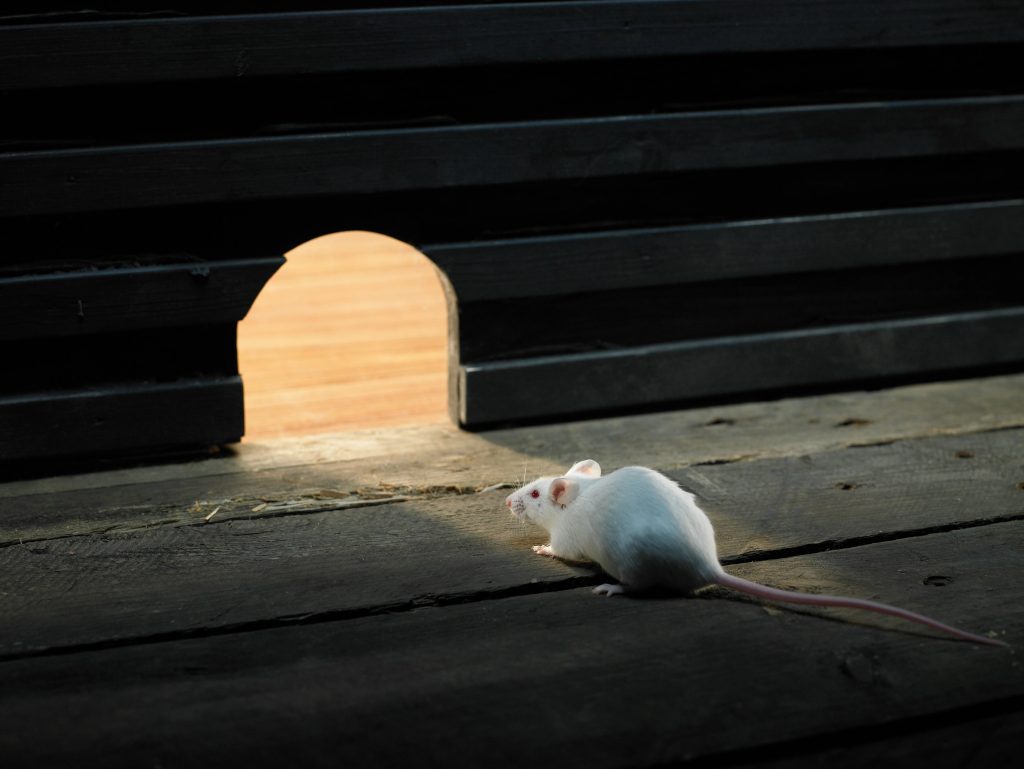
Safety concerns are paramount when using any kind of pesticide to treat pests in your home. The risks extend beyond the targeted rodent population, potentially affecting children, pets, and wildlife. Selecting EPA-registered products and opting for professional pesticide services can mitigate these risks.
Is Mouse Poison Ethical to Use?
The ethics of using mouse poison hinge on the balance between controlling rodent populations and ensuring the safety of other animals. Ethical use involves considering alternative control methods and choosing poisons with the least environmental impact.
What Is the Best Mouse Poison?
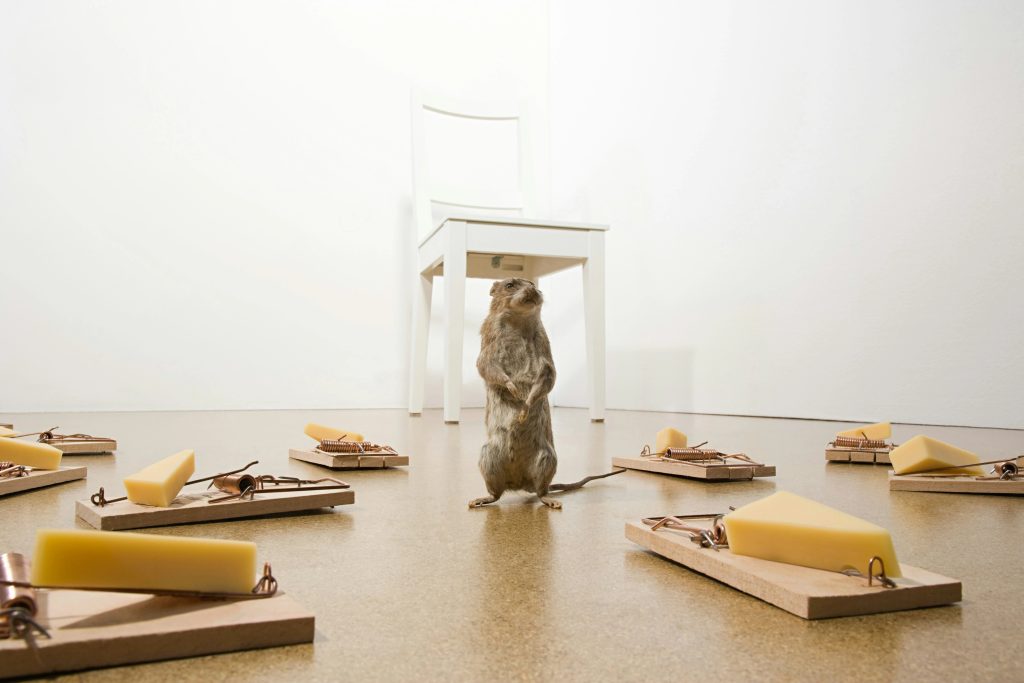
Identifying the best mouse poison depends on your specific situation, including infestation severity, household safety, and environmental concerns.
Mouse Poison Pellets
Mouse poison pellets offer a convenient form of rodenticide, often featuring attractive bait formulations. However, their accessibility may pose risks to non-target species.
Mouse Poison Traps
Traps combined with poison provide a targeted approach to rodent control, reducing unintended exposures. Mouse poison traps are a strategic option for localized infestations.
Mouse Poison Blocks
Rodenticide blocks are harder for small children and pets to ingest, making them a safer choice in households. They are effective in bait stations where rodents frequent.
Homemade Mouse Poison
While homemade mouse poison options exist, their effectiveness and safety can vary greatly. Professional advice is recommended before pursuing this route.
Bonus: Best Mouse Poison That Kills Without Smell
Products that kill without producing a decomposing odor offer a more pleasant solution to rodent control, especially important in indoor environments.
Types of Pet Safe Mouse Poison
Exploring types of pet safe mouse poison is crucial for households with furry friends. This type of mouse poison will ensure effective rodent control without compromising the safety of your pets.
Mouse Poison Safe for Dogs

Selecting mouse poison safe for dogs involves choosing products with a lower risk of accidental ingestion. You also want to ensure they are placed in areas inaccessible to dogs.
What if My Dog Ate Mouse Poison?
If accidental ingestion does happen, you may be wondering, “Does mouse poison kill dogs?”. Immediate veterinary consultation is crucial if your dog ingested mouse poison. Quick action can prevent serious health issues down the line.
Symptoms of Dog Eating Poisoned Mouse
Symptoms that your dog ate a poisoned mouse can include vomiting, lethargy, and abnormal bleeding. Monitoring for these signs is critical if you suspect your dog has ingested poisoned rodents.
Mouse Poison Safe for Cats
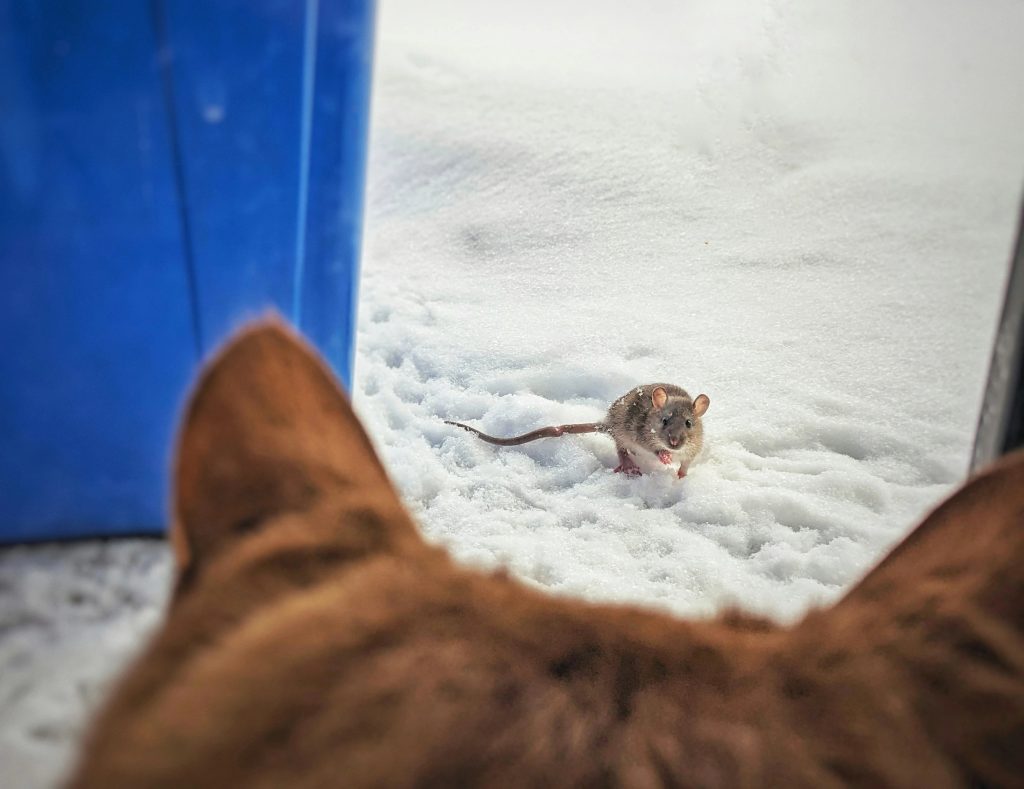
Similar precautions apply to keeping mouse poison safe for cats. When placing mouse poison, focus on areas that are inaccessible to your cats. Make sure to select products that will prevent accidental ingestion.
Mouse Poison Safe for Small Pets
Small pets are particularly vulnerable to rodenticides. We advise pet owners to choose non-toxic alternatives for households with small animals.
Will Mouse Poison Kill a Human?

While fatal incidents are rare, ingestion of significant amounts of mouse poison by humans can lead to severe health complications. Proper storage and handling are essential.
How to Safely Store and Handle Mouse Poison
Proper storage and handling of mouse poison are vital to preventing accidental exposure and ensuring the safety of both humans and pets in the household. Always store rodenticides in their original containers, well out of reach of children and animals, preferably in locked cabinets or storerooms.
When handling mouse poison, use gloves to avoid direct contact with the skin and follow the manufacturer’s instructions meticulously. After use, wash your hands thoroughly and dispose of any unused poison according to local regulations to minimize environmental impact.
These precautions help maintain a safe environment while effectively managing rodent populations.
What Are the Alternatives to Using Mouse Poison?
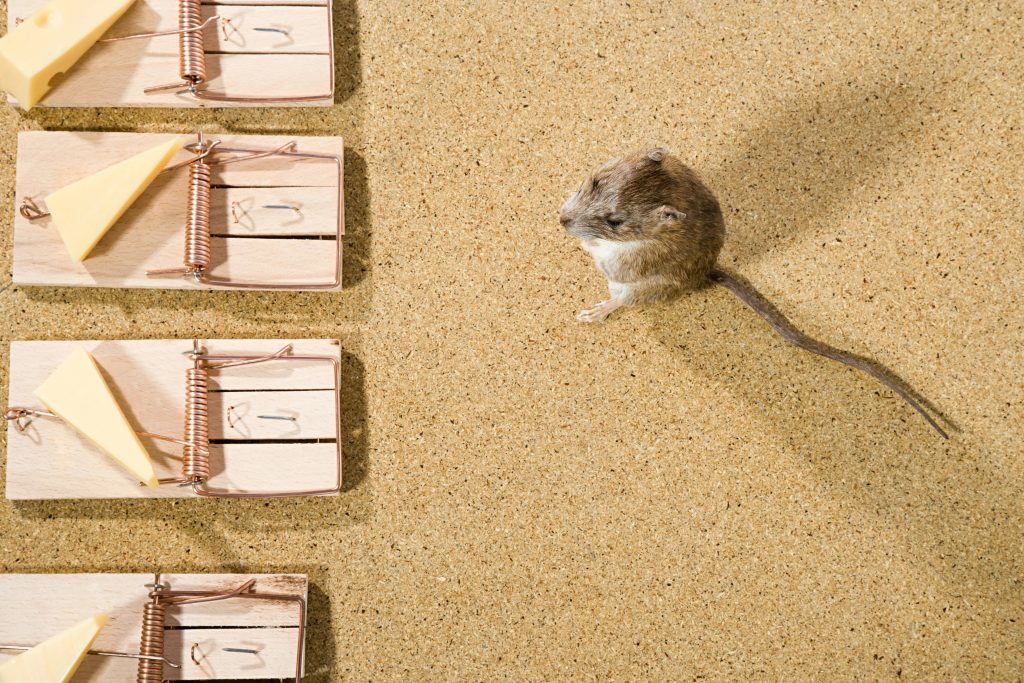
Exploring alternatives to mouse poison is essential for those seeking less hazardous methods of rodent control. Mechanical traps, for instance, offer a direct approach to capturing mice without the use of harmful chemicals. Electronic traps, which deliver a lethal electric shock, are another effective and clean option. For those preferring humane methods, live traps allow for the capture and release of rodents without harm.
Additionally, preventive measures such as sealing entry points, maintaining cleanliness to reduce food sources, and using natural deterrents like peppermint oil can significantly reduce rodent infestations. Adopting these alternatives can provide effective rodent control while mitigating the risks associated with poisons.
Best Mouse Poison for Multiple Infestations
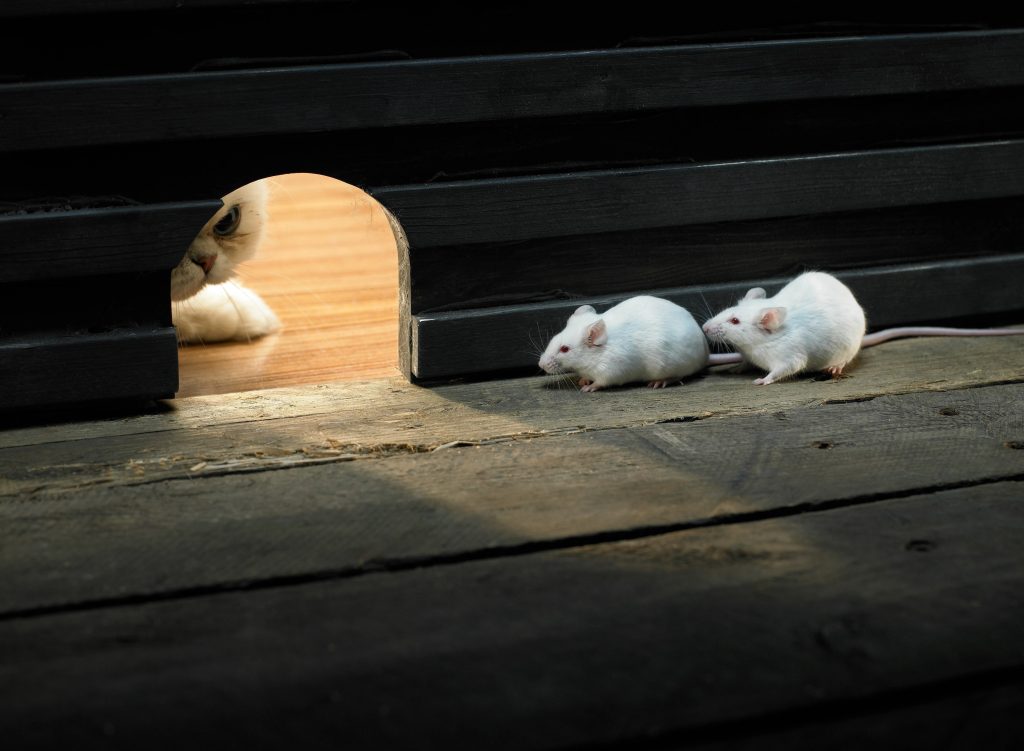
Selecting the best mouse poison for multiple infestations across different areas of the house requires careful consideration of each area’s unique characteristics. You also want to consider the safety of your household’s inhabitants.
For widespread infestations, look for versatile rodenticides that can be effectively used in many settings, from attics to basements. Choose products with tamper-resistant bait stations to safeguard pets and children in areas of high activity. For damp or less accessible areas, such as garages or crawl spaces, consider moisture-resistant poison blocks that remain effective in challenging environments.
Additionally, assess the severity of the infestation in each area to determine the appropriate potency and quantity of poison needed. Always prioritize products that offer a high level of safety features and are approved by the Environmental Protection Agency (EPA). Combining these considerations with strategic placement and consistent monitoring will help ensure effective control over mouse populations throughout your home.
What Is the Proper Way to Dispose of Unused Mouse Poison?

The proper disposal of unused mouse poison is critical to environmental protection and preventing accidental exposure to non-target animals and humans. Begin by reading the product label for specific disposal instructions provided by the manufacturer, as regulations can vary depending on the poison’s active ingredients.
Generally, unused rodenticides should never be poured down drains, thrown in regular trash, or left outdoors. Instead, contact your local waste management authority or hazardous waste disposal facility to inquire about drop-off locations and scheduled collection events for hazardous materials.
Some areas offer community collection programs specifically designed for the safe disposal of pesticides and other toxic substances. Ensuring that unused mouse poison is disposed of in accordance with local regulations helps minimize environmental impact and promotes community safety.
Conclusion: Is Mouse Poison Safe to Use?
When used responsibly, mouse poison can be part of an effective rodent control strategy. Prioritizing safety, considering ethical implications, and selecting the appropriate type of mouse poison are crucial steps. Consulting a pest professional is always the best course of action to ensure the safe and effective use of mouse poison in your home.
At Naturalcare Pest Control, we specialize in using low impact, family and pet friendly pest treatments. We use the same products for our homes and families. We successfully treat homes with koi fish, chickens, bee hives and of course kids and pets!
Get a quote today to enjoy a pest-free home and family-friendly service year-round.
Frequently Asked Questions
How long does it take for mouse poison to work?
The time it takes for mouse poison to work can vary depending on the type of poison used and the size of the rodent. Typically, it takes a few days to a week for the rodent to die after ingesting the poison.
Can mouse poison be used outdoors?
Yes, mouse poison can be used outdoors; however, it should be placed in weather-resistant bait stations to prevent contamination of the environment and to keep it away from non-target animals.
Are there any alternatives to using mouse poison?
Yes, alternatives include snap traps, electronic traps, and live traps. These methods can be effective and are safer around pets and children. Maintaining cleanliness and sealing entry points to your home can also help prevent rodent infestations.
How should I dispose of dead rodents after using mouse poison?
Dead rodents should be handled with gloves and disposed of in a sealed plastic bag to prevent the spread of any diseases. It’s important to follow local regulations for disposing of wildlife.

